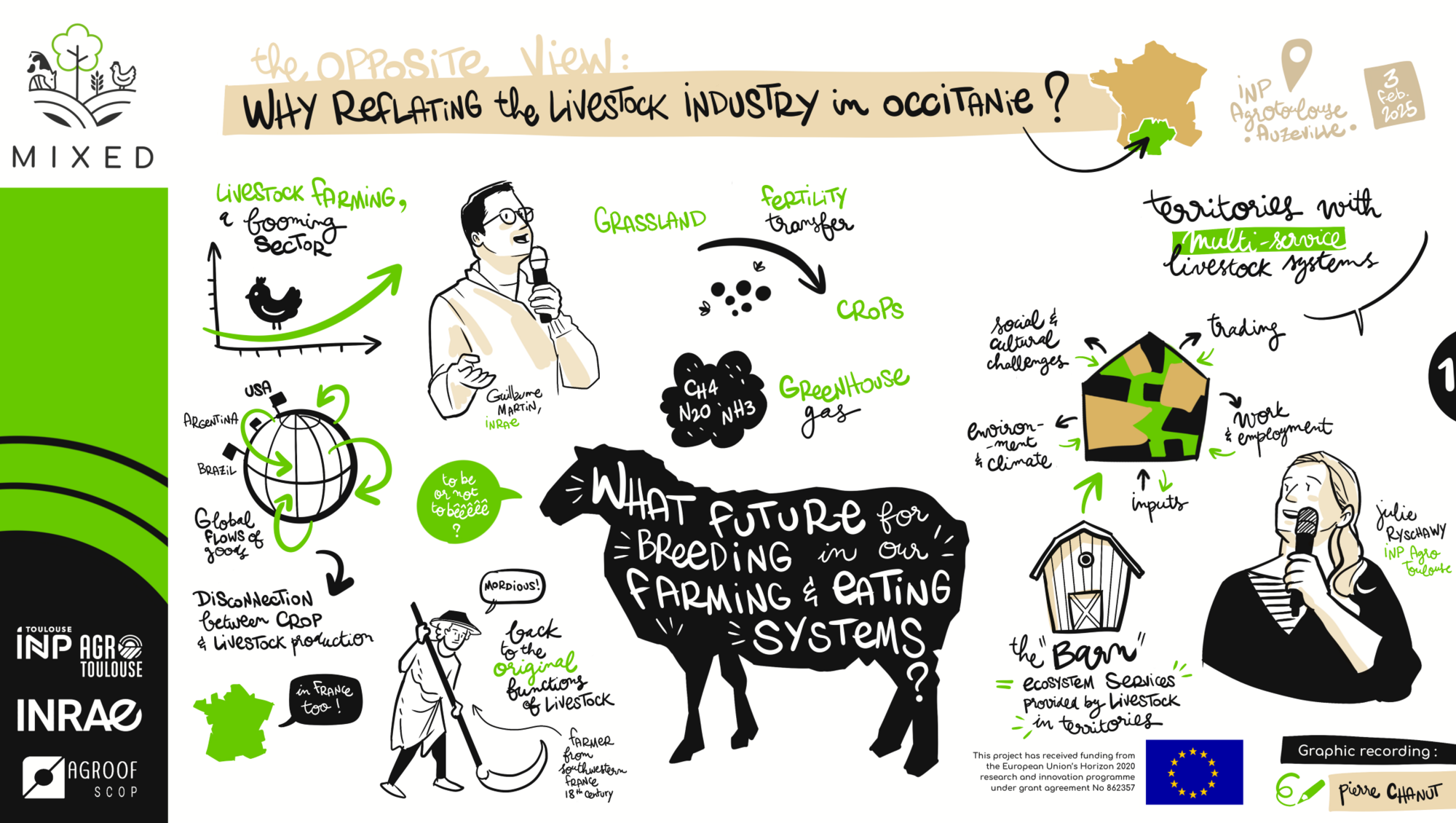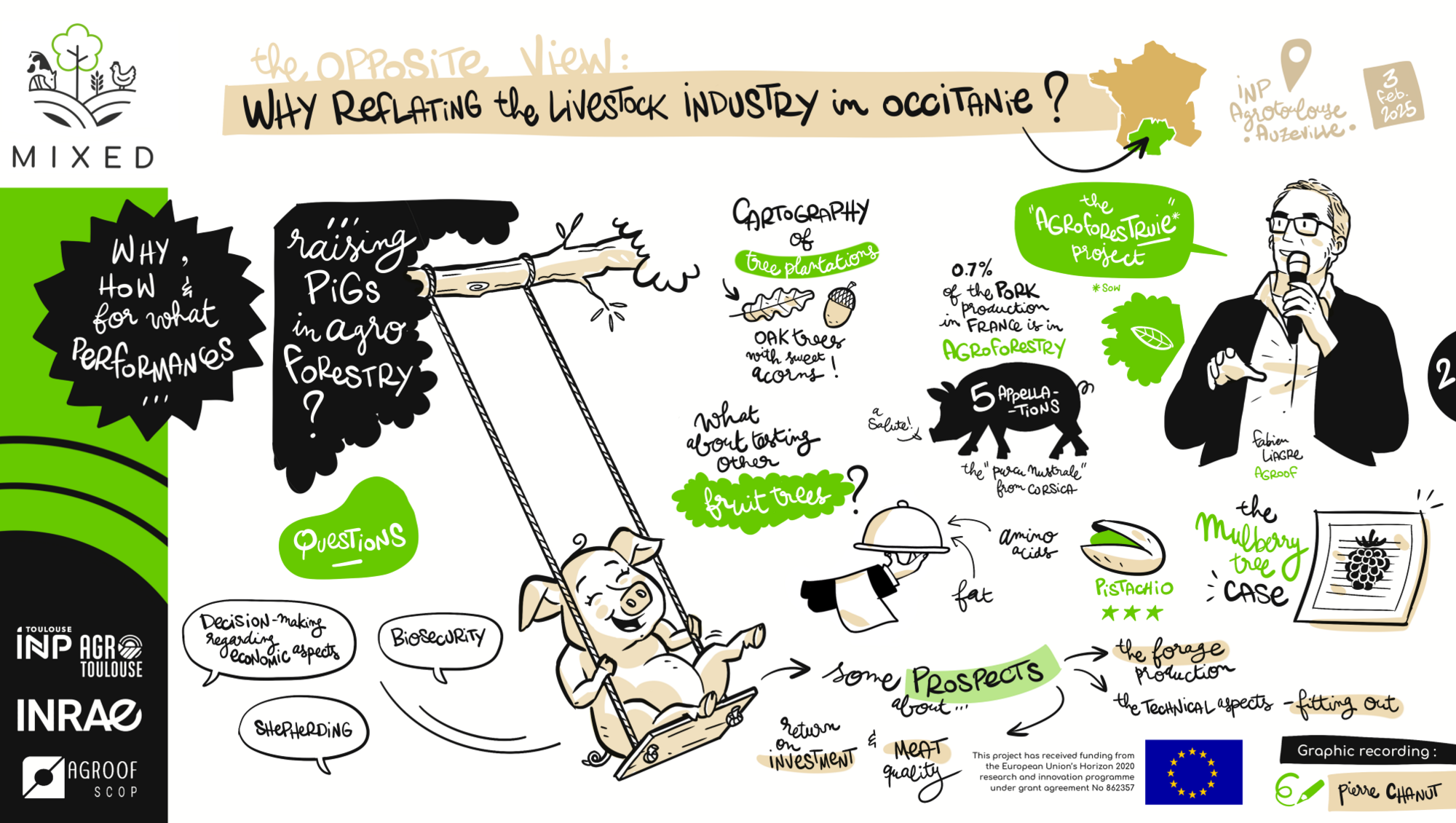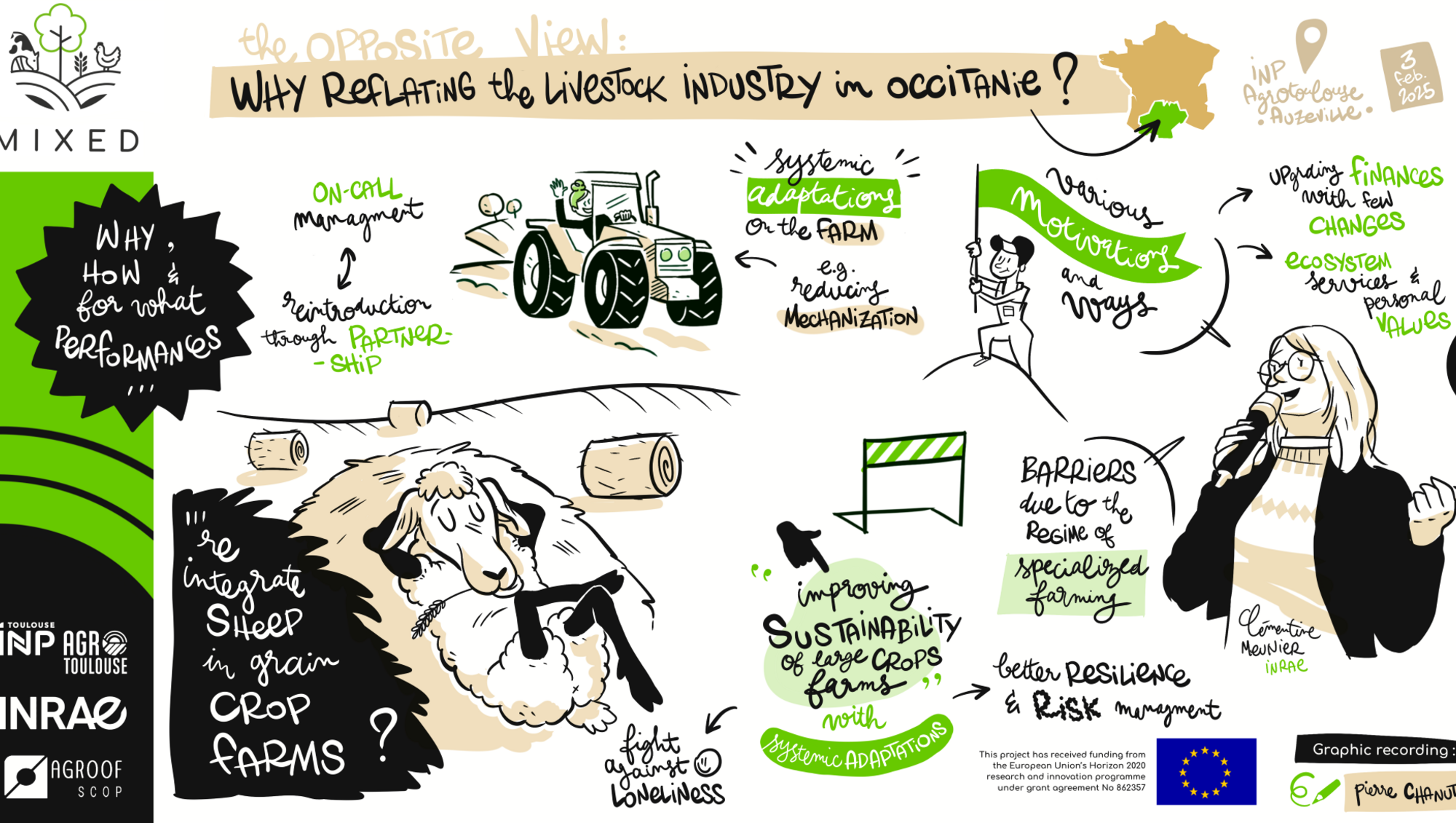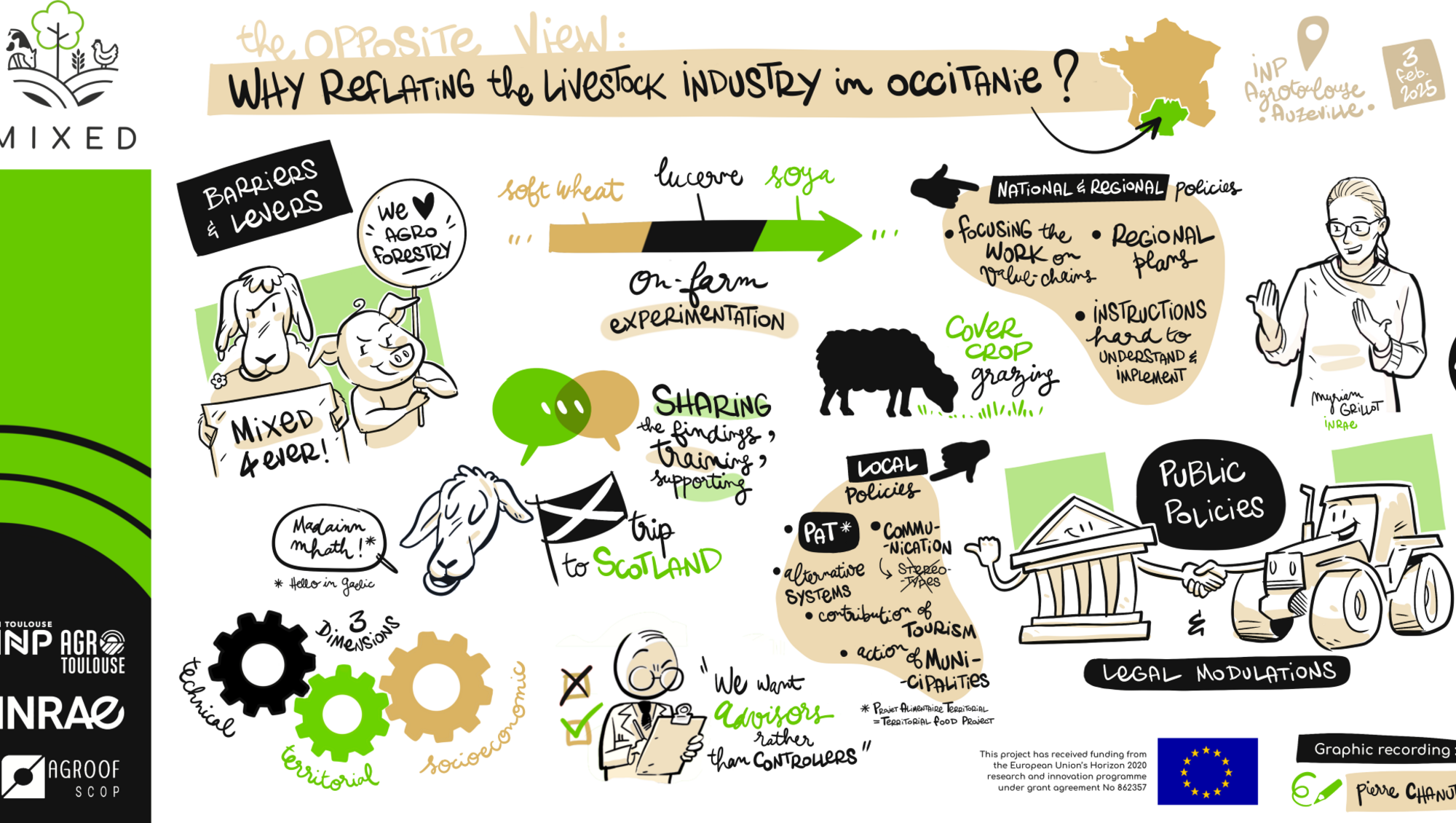Shaping the Future of Mixed Farming: Insights from the MIXED Policy Workshops
Transitioning towards Mixed Farming and Agroforestry Systems (MiFAS) requires supportive policies, financial incentives, and regulatory frameworks that encourage adoption at farm and regional levels. To address these challenges, the policy workshops provided a structured platform to:
- Disseminate project results to key stakeholders, including policy bodies at national and EU levels.
- Facilitate discussions on scaling up MiFAS, considering regional challenges and opportunities.
- Engage policymakers in identifying key legislative and financial instruments needed to support transitions.
- Encourage stakeholder collaboration, fostering knowledge exchange and long-term partnerships.
Policy development plays a crucial role in shaping the future of sustainable agriculture, and within the MIXED project, Policy Workshops have been a key mechanism to bridge the gap between research, farming practices, and policy frameworks. These workshops aimed to ensure that the project's findings and recommendations are effectively communicated to farmers, advisors, scientists, and policymakers.
As the MIXED project nears its conclusion, a series of policy workshops were held across 10 partner countries to discuss the future of Mixed Farming and Agroforestry Systems (MiFAS). These workshops brought together farmers, policymakers, researchers, and advisors to reflect on project results and propose policy recommendations that support sustainable transitions in European agriculture. Bellow there is a summary of key insights and outcomes from some of these impactful events.
Integrating Research into Policy
Each national team within the project played a critical role in organizing stakeholder meetings that reflected local and regional agricultural challenges. These workshops were informed by earlier back-casting exercises (Task 1.2) that identified barriers and opportunities for mixed farming in each country. The discussions also built on the policy analysis conducted in WP6, ensuring that recommendations were grounded in both research findings and practical experiences from farmers.
To ensure a structured approach, CONSULAI—in collaboration with IFLS (leader of Task 6.4 on policy assessment), WU (leader of WP6), and AU-ICROFS—developed guidelines for workshop organization. These sessions helped refine policy recommendations, ensuring they align with the needs of farmers and advisors, while also being actionable for policymakers.
Key Discussions & Takeaways from the National Workshops
Austria: Integrating Apple Hens into Orchards
The Austrian Apple Hen Network, in collaboration with BOKU University, held a final stakeholder and policy workshop on January 23, 2025, to discuss the integration of laying hens in organic orchards and key findings from the MIXED project. The discussion highlighted challenges such as regulatory constraints, technical skills, and new marketing approaches.
Key takeaways included the development of a mobile barn model, risk management strategies for poultry in orchards, and cost-effective feeding solutions. A positive outcome was that Austria’s updated ÖPUL agri-environmental program now includes funding for mixed farming, though further policy improvements are needed to support long-term agroforestry systems.
Denmark: Challenges and solutions for agroforestry with livestock
The Danish Stakeholder & Policy Workshop (November 8, 2024) in Gothenborg brought together 130 participants to discuss challenges and solutions for agroforestry with livestock. Key issues included the lack of adapted machinery, rigid regulations, high establishment costs, and knowledge gaps on biodiversity and tree-livestock interactions. Farmers also highlighted the need for flexible subsidy schemes, better advisory services, and stronger market incentives for agroforestry products.
To address these barriers, proposed solutions included creating a knowledge bank, establishing demonstration farms, forming cooperatives for shared resources, and developing certification schemes to add market value. The network particularly emphasized the need for better agroforestry design with livestock, focusing on biodiversity, crop integration, and tree-based feed systems. These insights will help shape future policy recommendations for sustainable mixed farming in Denmark.
France: Soil Health and Grazing Integration
The French Stakeholder & Policy Workshop (February 3, 2025) in Toulouse focused on two key MiFAS): grazing in agroforestry and crop-livestock collaboration in Ariège. Discussions covered challenges like the design of agroforestry systems for livestock, biosecurity risks, and the role of farmers and advisors in implementing these systems. Payment for ecosystem services was highlighted as a potential incentive for farmers reintegrating crops and livestock.
Key policy recommendations included the simplification of CAP regulations, long-term agroforestry subsidies without restrictive conditions, and funding for local food mediators and training programs. Participants stressed the need for collective organisations and value chain development to support MiFAS products. Moving forward, price premiums and ecosystem service payments were identified as crucial levers for encouraging sustainable mixed farming in France.

Germany: Diverse Agroforestry Systems
The German Stakeholder & Policy Workshop (December 12-13, 2024) gathered experts from ArGe Donaumoos, agroforst-monitoring.de, and IfLS to discuss policy recommendations for mixed farming and agroforestry in Germany. Key discussions focused on aligning research funding with practical needs, ensuring long-term yet flexible support, and the disconnect between administration and farmers, which often leads to restrictive regulations and lengthy decision-making processes.
Participants highlighted the need for multidisciplinary teams to adapt landscape planning to modern agricultural and climate realities. Additionally, they highlighted the importance of strategically integrating stakeholder meetings into policymaking processes to enhance impact and encourage political action. Addressing negative perceptions of agriculture in administrative bodies was identified as essential to improving policy implementation and regulatory flexibility.

Poland: Agroforestry and Shelterbelt Systems
The Polish Stakeholder & Policy Workshop (January 14, 2025, Warsaw) focused on the Juchowo Village Project, revealing that while mixed farming systems (MiFAS) offer diverse benefits, they also pose significant challenges such as the lack of skilled labor, complex regulations, and high costs. Participants highlighted the need to separate out simpler, more doable measures for wider adoption, as replicating a large-scale, holistic model like Juchowo can be daunting for average farmers. They also highlighted the importance of addressing administrative barriers—for instance, restrictions on fruit tree varieties and grazing in forested areas—and of simplifying procedures for farmers seeking agroforestry subsidies.
Proposed solutions included simplifying and liberalizing regulations for organic farming and agroforestry, fostering collaboration among farmers, and supporting product development and market access to strengthen value chains. Greater education for both farmers and consumers, along with tailored financial support and cooperative approaches, were seen as vital. Looking ahead, the network aims to boost on-farm resource production, invest in renewable energy, and enhance product quality through better technology and traditional knowledge, ultimately making MiFAS more accessible and profitable in Poland. Key recommendations included more flexible subsidies, allowing existing trees to qualify for funding, and increasing education efforts for both farmers and consumers. The workshop also highlighted the need for collaborative farming models, value chain development, and greater policy support to enhance the feasibility and long-term sustainability of mixed farming systems in Poland.
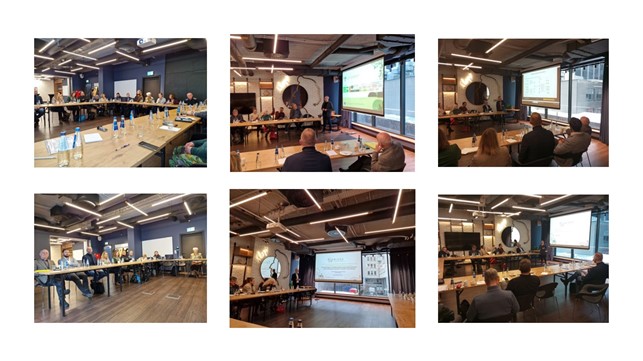
Portugal: Sustainability in Montado Systems
The Portuguese Stakeholder & Policy Workshop (February 21, 2025, Lisbon) focused on financing policies for mixed farming and agroforestry under the Strategic Plan for the Common Agricultural Policy (PEPAC) 2023-2027. Organized by CONSULAI, the event gathered advisors to discuss funding challenges, sustainability criteria, and investment opportunities for modernizing farming practices and improving environmental performance.
Key recommendations included simplifying funding access, aligning CAP regulations with national strategies, and increasing investment in knowledge exchange and advisory services to support farmers in transitioning to more sustainable and resilient systems. Looking ahead, stakeholders emphasized the importance of multi-stakeholder collaboration and continuous dialogue between policymakers and practitioners to refine support mechanisms and drive the future development of Mixed Farming and Agroforestry Systems (MiFAS) in Portugal.

Romania: Promoting Local Food Systems
The Romanian Stakeholder & Policy Workshop (February 18, 2025, Bucharest) brought together farmers, researchers, and policymakers to address key challenges in mixed farming and agroforestry systems (MiFAS). The main issues identified were the poor integration of small farms into local value chains and the lack of collaboration among farmers. To tackle these, the “Povești de Argeș” platform was launched to connect producers with consumers, enhancing visibility and market access. Additionally, field visits to successful cooperatives were organized to build trust and showcase the benefits of farmer collaboration.
Policy discussions emphasized simplifying regulations, enhancing advisory services, and promoting territorial-based strategies to strengthen local synergies. Participants also highlighted the need for consumer education to increase demand for local products and stressed the importance of developing short value chains and local processing facilities. Moving forward, the focus will be on strengthening regional cooperation, leveraging social media for promotion, and supporting knowledge transfer to create a resilient and sustainable mixed farming landscape in Romania.
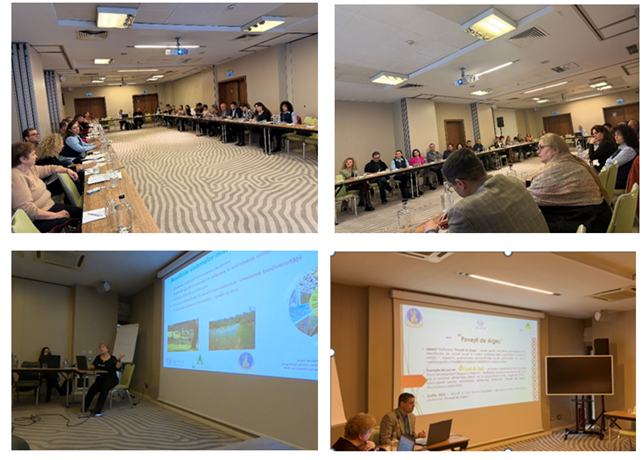
Switzerland: Sustainable Agroforestry with Fruit and Livestock
The Swiss Stakeholder & Policy Workshop (divided in two parts: August & November 2024) focused on enhancing efficiency, sustainability, and profitability in mixed high-stem fruit and livestock systems. Key challenges include tree damage by animals, pest control, complex grazing schedules, and high labour demands. Discussions also addressed the need for better mechanisation, with promising results from trials using the Bosco Olivespeed harvester and STIHL SP-452 shaker, improving harvesting efficiency but also highlighting the risk of tree damage.
Economic viability remains a concern, with direct marketing and niche product promotion seen as potential solutions, despite logistical challenges. Participants stressed the importance of knowledge exchange and collaboration among Swiss, Austrian, and Portuguese farmers to strengthen their systems. However, policy gaps remain, with national agroforestry strategies needing more clarity and targeted support. Moving forward, mechanisation, market access, biodiversity conservation, and policy alignment will be crucial for the long-term success of Swiss mixed farming systems.
The Netherlands: Collaboration between arable and livestock farmers
The Dutch MIXED Network focused on regional collaboration between arable and livestock farmers as an alternative to traditional mixed farms. A key practice discussed was land swapping, where more than half of the farmland in Drenthe is exchanged annually. This collaboration improves crop rotation, reduces disease and pest pressure, enhances soil organic matter, and optimizes nutrient cycles through manure application. Additionally, closing cycles regionally helps reduce CO2 emissions, a practice now incentivized by FrieslandCampina's CO2 premium for farmers.
Looking forward, the workshop emphasized the need for policy shifts towards soil-focused agricultural policies and target-driven environmental regulations. Current policies often dictate specific farming methods rather than setting measurable environmental goals. Future regulations should recognize regional nutrient cycles and land exchange, allowing farmers greater flexibility in achieving sustainability targets while ensuring compliance with climate and environmental objectives.
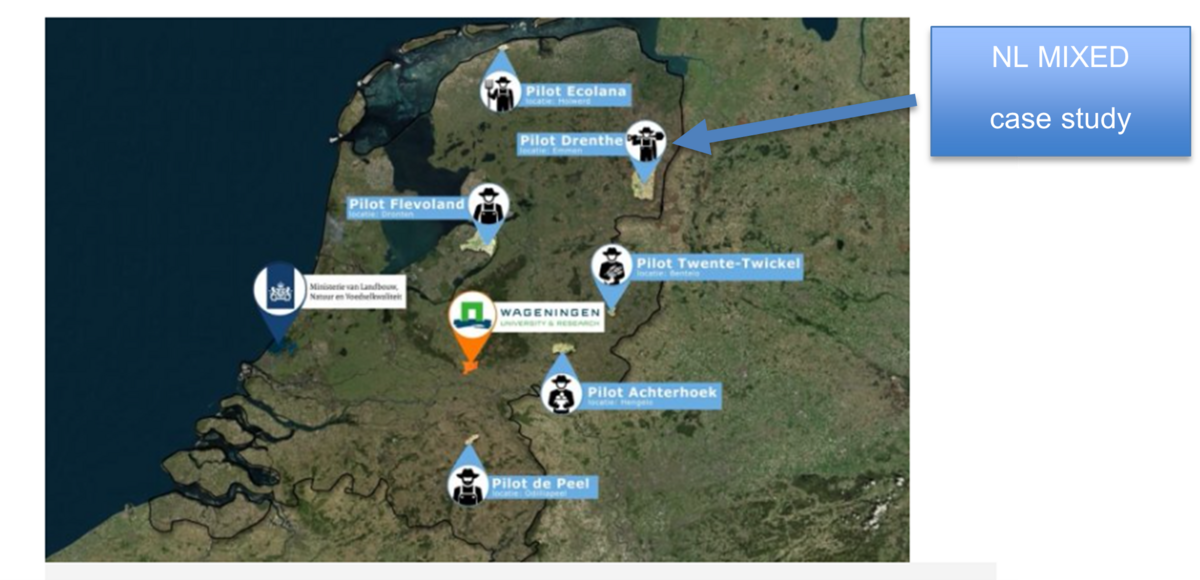
United Kingdom: Winter Grazing Trials
The UK MIXED team presented key project findings at the SAOS annual conference, reaching a broad audience of farmers, advisors, and policymakers. The team shared insights through research posters, covering winter grazing of cereals by sheep, collaborative mixed farming models, and participatory learning methodologies. Discussions highlighted the economic and environmental benefits of winter cereal grazing, but also the challenges of establishing effective collaborations between arable and livestock farmers.
Stakeholders recognized the potential for reducing carbon footprints through mixed farming but noted the lack of market incentives for environmental goods. While financial benefits exist for farmers adopting these practices, long-term support through government schemes is needed. Further research on species selection for cover crop grazing and frameworks to reward sustainable practices will be essential for wider adoption.
Policy Recommendations Moving Forward
Across all national workshops, several common policy needs were identified:
- Better financial incentives to encourage farmers to adopt mixed farming and agroforestry practices.
- Stronger advisory networks to provide technical and economic guidance.
- Simplified regulations to reduce administrative burdens and make transitions smoother.
- Support for market access and promotion of local products.
- Education and training to address knowledge gaps and encourage collaboration among farmers.
The insights from these workshops are now being integrated into the final policy recommendations of the MIXED project, which will be shared with EU and national policymakers to help shape the future of sustainable farming in Europe
Looking Ahead: Turning Discussions into Action
As mentioned, the outcomes of these workshops are now being compiled into final policy recommendations, which will serve as a roadmap for policymakers, funding bodies, and farming communities looking to support and implement MiFAS at scale. By fostering collaboration across sectors, the MIXED project has helped lay the groundwork for a more resilient, efficient, and sustainable agricultural landscape in Europe.
These workshops were not just a discussion platform, but a stepping stone towards impactful policy changes, ensuring that mixed farming and agroforestry systems can thrive in the years to come.

